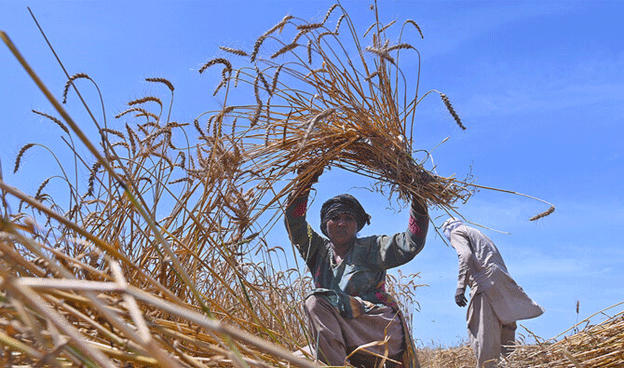Pakistan’s Federal Minister for National Food Security and Research, Rana Tanveer Hussain, has directed authorities to expedite the sale of stored wheat ahead of the upcoming harvest season. This initiative aims to prevent financial losses and support both farmers and consumers. The directive comes in response to past challenges, including market disruptions due to surplus imports and resulting farmer protests.
Background and Recent Challenges
In Pakistan, wheat is typically sown in mid-December, with harvesting commencing in March and peaking between April and early June. However, in the previous year, the country faced significant issues when excessive wheat imports led to market saturation. This glut caused domestic wheat prices to plummet, falling below the government’s support price of Rs3,900 ($14) per 40-kilogram bag. Consequently, farmers organized protests across various cities, including Lahore, expressing their grievances over reduced earnings and the government’s import policies.
Government’s Proactive Measures
To address these concerns and avert future crises, Minister Hussain convened a high-level meeting to review wheat reserves, management strategies, and the sales process. He emphasized the importance of timely wheat sales to maintain quality and prevent financial losses to the national treasury. The Pakistan Agricultural Storage & Services Corporation (PASSCO) reported enhanced coordination with provincial authorities and other agencies to accelerate wheat sales. They have implemented measures to ensure transparency, aiming to benefit both farmers and consumers. Minister Hussain also stressed the adoption of modern technologies in wheat procurement and sales to improve efficiency and transparency.
By prioritizing the timely sale of stored wheat and integrating technological advancements, Pakistan aims to stabilize its wheat market, safeguard farmer interests, and ensure food security for its population. These proactive measures reflect the government’s commitment to addressing past challenges and fostering a sustainable agricultural sector.
Error




